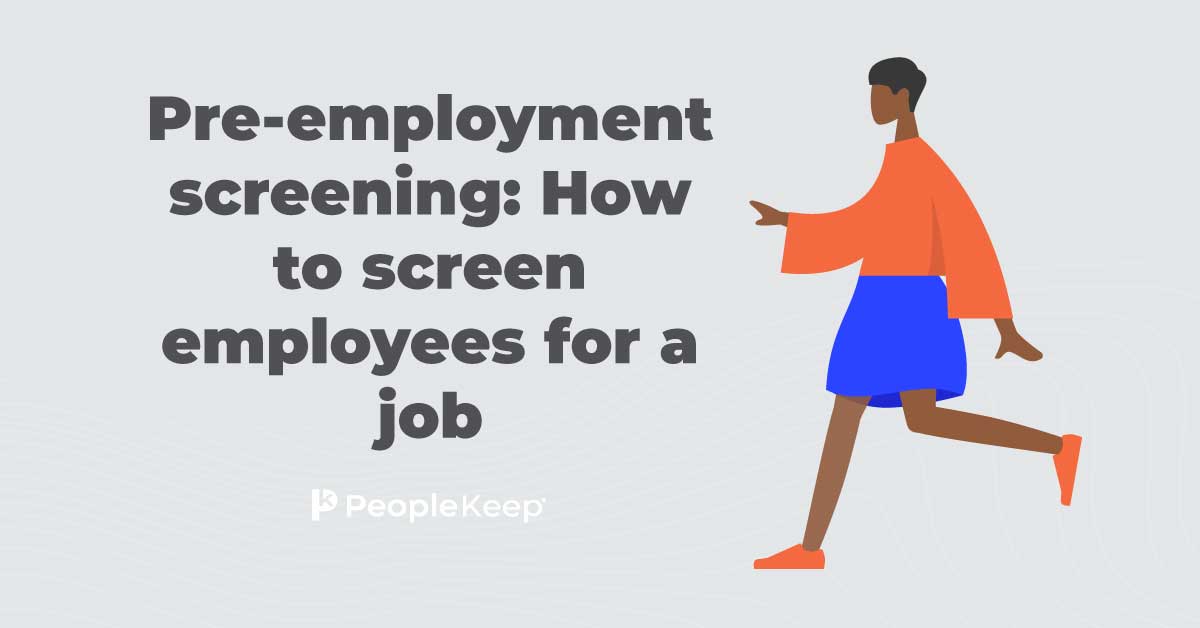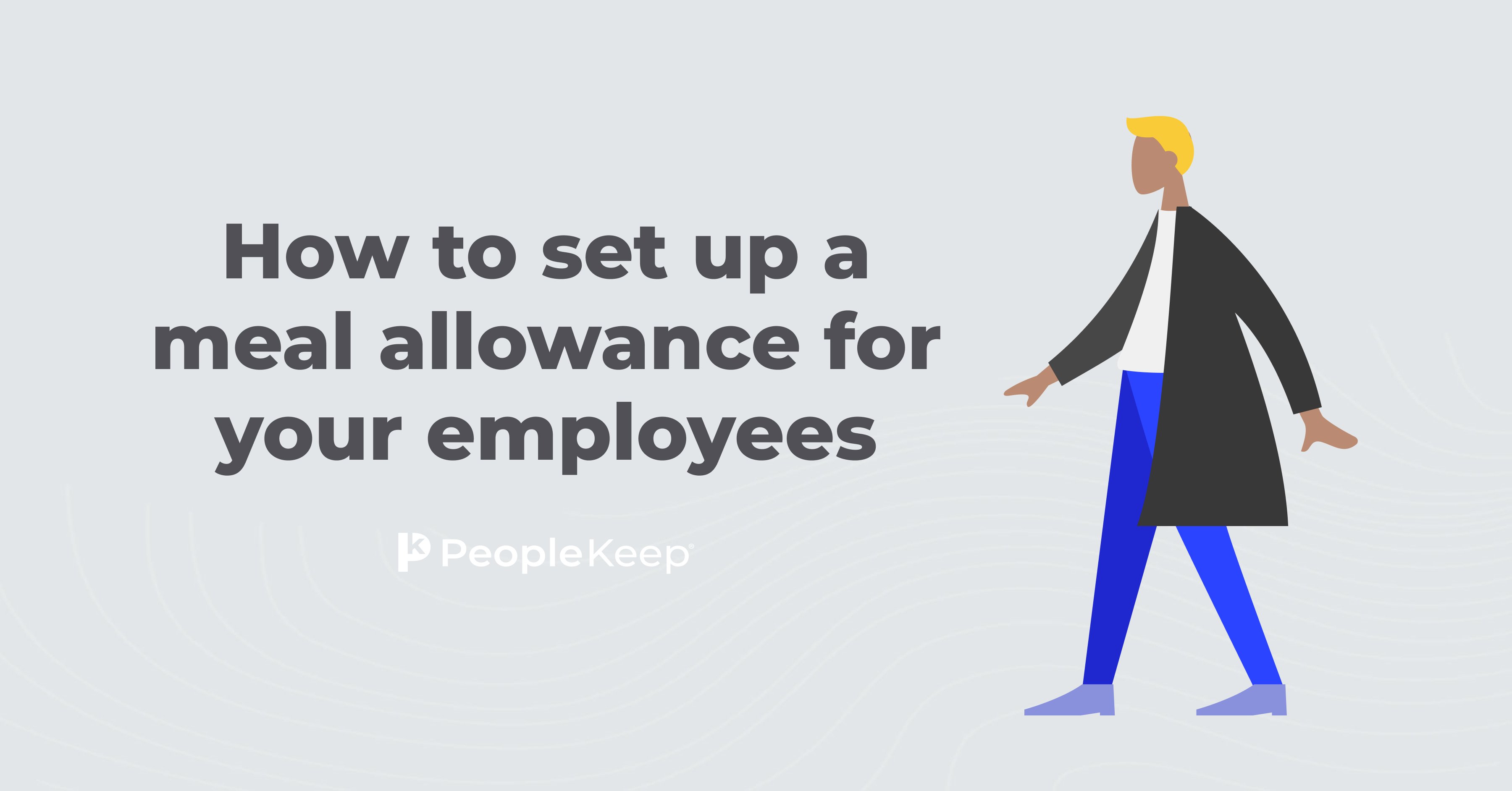Federal employment laws to follow for your company size
By Elizabeth Walker on June 2, 2023 at 7:21 AM
As a small or medium size business owner, it’s an exciting and rewarding experience to see your company grow and prosper, especially as you hire more employees to meet the increased demand.
But as your company grows, so does the list of federal employment laws you’ll need to follow to keep your company compliant. Generally speaking, the more employees you have, the more rules and regulations you’ll need to be aware of.
While keeping track of all the regulations that apply to your organization may seem daunting, we’re here to help keep things straight. In this article, we’ll go over the federal employment laws you’ll need to be aware of as you reach specific company size thresholds.
Why is company size important?
In many cases, the federal employment laws that apply to your business depend on the number of employees in your workforce. Several federal rules apply to all public and private employers, but certain laws are only required for businesses of a certain size.
For example, small business owners aren’t fined by government agencies for failing to adhere to specific laws for larger employers—such as the employer mandate for healthcare—but if your company grows to a certain size, you’ll be responsible for following those laws.
That’s why knowing which regulations apply to your company is so important in keeping your company compliant and free of costly penalties.
In addition to federal policies, states may have their own regulations to follow based on employee count. Check your state’s labor standards to learn more about your requirements.
Federal employment laws by company size
All company sizes
- Consumer Credit Protection Act1(CCPA)
-
- The CCPA protects current employees from discharge by their employer due to wage garnishment for any one debt. It also limits the number of an employee's earnings that may be garnished in any one week.
- Employee Polygraph Protection Act2(EPPA)
-
- The EPPA prevents employers from using lie detector tests in the employee interview process or during employment. You also must display an EPPA poster at your workplace.
- Employment Retirement Income Security Act3(ERISA)
-
- ERISA sets minimum standards for employee benefit plans, including retirement plans and welfare benefit plans, such as a 401(k) or group health plan. It also outlines that employers must inform plan participants about the plan features, funding, and responsibilities.
- Equal Pay Act4(EPA)
-
- The EPA requires that employers provide equal compensation for both men and women who perform equal work in the same workplace. This regulation covers all forms of pay, and you must display an EPA poster at your workplace.
- Fair and Accurate Credit Transactions Act5(FACT)
-
- This act protects employees against identity theft.
- Fair Labor Standards Act6(FLSA)
-
- The FLSA establishes federal minimum wage, overtime, recordkeeping, and child labor laws for employers.
- It also requires you to pay an overtime rate equal to 1.5 times an hourly employee’s regular rate if they work more than 40 hours in a given workweek.
- Federal income tax withholding7
-
- Employers must withhold a set percentage of employee wages for the federal government.
- Federal Insurance Contribution Act8(FICA)
-
- Requires that employers withhold a set percentage of employee wages for Social Security and Medicare.
- Health Insurance Portability and Accountability Act9(HIPAA)
-
- Ensures that employees’ protected health information is kept private and that employers can’t receive information about an employee’s health condition from healthcare providers.
- Immigration Reform & Control Act10(IRCA)
-
- Mandates that only those who can legally work in the United States can be hired, and employers maintain up-to-date I-9 forms for all employees.
- Jury Systems Improvement Act11(JSIA)
- Prohibits employers from dismissing or punishing individuals from fulfilling jury duty obligations in a federal court.
- Note: Each state has its own requirements on whether they must provide paid time off for jury duty or not.
- National Labor Relations Act12(NLRA)
-
- Protects employees from being disciplined by their employer for forming or joining a union or taking collective action, such as strikes.
- Occupational Safety and Health Act13(OSHA)
-
- Requires employers to provide a safe workplace for their employees by following federally-set standards for safe employment conditions, hazard communication, and personal protective equipment.
- Employers with at least 11 employees must maintain records in compliance with OSHA.
- Sarbanes-Oxley Act14(SOX)
-
- Requires public companies to follow set mandates in financial recordkeeping to combat fraud and improve financial disclosures.
- Uniformed Services Employment & Reemployment Rights Act15(USERRA)
-
- The USERRA protects military workers from discrimination based on membership in the uniformed services concerning any aspect of employment.
- Employees taking leave for military service must give 60 days' notice. As an employer, you must allow them to do their previous job when their service is finished.
- Uniform Guidelines for Employment Selection Procedures16
-
- Requires employers to make equitable employment decisions per Title VII of the Civil Rights Act.
15+ employee company
- Americans with Disabilities Act17(ADA)
-
- The ADA protects people with disabilities from discrimination in employment practices, including recruitment, compensation, hiring and firing, job assignments, training, leave, and benefits.
- Additionally, you must make “reasonable accommodations” for individuals with disabilities.
- A reasonable accommodation is any modification to a job or workplace that enables employees with disabilities to participate in the application process or perform necessary job functions.
- Genetic Information Nondiscrimination Act18(GINA)
-
- GINA protects current and prospective employees from discrimination based on their genetic information, including family medical history, genetic tests, requests for genetic services, and genetic information about their fetuses and embryos.
- Pregnancy Discrimination Act19(PDA)
- This act protects pregnant employees from discrimination due to pregnancy, childbirth, or pregnancy-related conditions.
- Title VII, Civil Rights Act of 196420
-
- Title VII protects job seekers and employees from discrimination based on race, color, religion, sex, or national origin. This includes firing someone for a discriminatory reason.
20+ employee company
- Age Discrimination in Employment Act21(ADEA)
-
- Protects applicants and employees who are 40+ years old from discrimination based on their age.
- Consolidated Omnibus Budget Reconciliation Act22(COBRA)
-
- Provides certain employees, retirees, spouses, former spouses, and dependent children the right to temporarily continue their employer-sponsored health benefits when health insurance coverage would otherwise be lost due to certain events (i.e., termination of employment, reduced work hours, divorce, etc.).
- Some states have their own version of COBRA that applies to smaller organizations.
- Provides certain employees, retirees, spouses, former spouses, and dependent children the right to temporarily continue their employer-sponsored health benefits when health insurance coverage would otherwise be lost due to certain events (i.e., termination of employment, reduced work hours, divorce, etc.).
50+ employee company: Applicable large employers (ALEs)
- Affordable Care Act (ACA)’s Employer Shared Responsibility Provisions23
-
- Employers of this size are classified as applicable large employers (ALEs) under the ACA and are subject to the employer mandate.
- This means they must offer full-time employees affordable health insurance benefits that meet minimum value, regardless of their health condition, age, or other discriminatory factors, or potentially pay a penalty.
- Employers of this size are classified as applicable large employers (ALEs) under the ACA and are subject to the employer mandate.
- Affirmative Action Program24(AAP)
-
- Requires employers to create programs to ensure the right of all persons to advance within the organization based on merit and ability without regard to race, color, religion, sex, sexual orientation, national origin, age, disability, genetic information, veteran status, or other factors.
- Family and Medical Leave Act25(FMLA)
-
- Requires employers to provide eligible employees with unpaid, job-protected leave for certain family and medical reasons, including having a baby, adopting a child, or severe family illness.
- An eligible employee only qualifies for the FMLA if they’ve worked at least 1,250 hours during the past 12-month period.
100+ employee company
- EEO-1 Survey Filing26(Title VII, Civil Rights Act of 1964)
-
- Requires employers to submit an EEO-1 report categorized by gender identity, job category, race/ethnicity, wages, and hours to the Equal Employment Opportunity Commission (EEOC).
- If the organization is a federal contractor, this requirement is in force for 50+ employees.
- Requires employers to submit an EEO-1 report categorized by gender identity, job category, race/ethnicity, wages, and hours to the Equal Employment Opportunity Commission (EEOC).
- Worker Adjustment Retraining Notification Act27(WARN)
-
- Requires employers to give employees at least 60 days advanced notice of workplace closings and mass layoffs that affect 50+ workers at a single employment site.
Conclusion
Federal labor laws can be tricky to understand for any business owner, regardless of your company size. While this list of federal employment laws is an excellent place to start, we recommend consulting with a legal expert in your area that’s familiar with your industry for an exhaustive list of employment laws for your organization.
This article was originally published on December 1, 2021. It was last updated on June 2, 2023.
- https://www.dol.gov/agencies/whd/fact-sheets/30-cppa
- https://www.dol.gov/agencies/whd/polygraph
- https://www.dol.gov/general/topic/retirement/erisa
- https://www.eeoc.gov/statutes/equal-pay-act-1963
- https://www.ftc.gov/legal-library/browse/statutes/fair-accurate-credit-transactions-act-2003
- https://www.dol.gov/agencies/whd/flsa
- https://www.irs.gov/payments/tax-withholding
- https://www.ssa.gov/thirdparty/materials/pdfs/educators/What-is-FICA-Infographic-EN-05-10297.pdf
- https://www.cdc.gov/phlp/php/resources/health-insurance-portability-and-accountability-act-of-1996-hipaa.html
- https://www.congress.gov/bill/99th-congress/senate-bill/1200
- https://www.congress.gov/bill/95th-congress/house-bill/12389
- https://www.nlrb.gov/guidance/key-reference-materials/national-labor-relations-act
- https://www.osha.gov/laws-regs/oshact/completeoshact
- https://www.congress.gov/bill/107th-congress/house-bill/3763
- https://www.dol.gov/agencies/vets/programs/userra
- https://www.eeoc.gov/laws/guidance/employment-tests-and-selection-procedures
- https://www.ada.gov/
- https://www.eeoc.gov/statutes/genetic-information-nondiscrimination-act-2008
- https://www.eeoc.gov/statutes/pregnancy-discrimination-act-1978
- https://www.eeoc.gov/statutes/title-vii-civil-rights-act-1964
- https://www.eeoc.gov/statutes/age-discrimination-employment-act-1967
- https://www.dol.gov/general/topic/health-plans/cobra
- https://www.irs.gov/affordable-care-act/employers/employer-shared-responsibility-provisions
- https://www.dol.gov/general/topic/hiring/affirmativeact
- https://www.dol.gov/agencies/whd/fmla
- EEOC
- https://www.dol.gov/general/topic/termination/plantclosings
Check out more resources
See these related articles

Health savings account (HSA) FAQs
Learn what happens to your HSA when you leave a job and more. Get answers to common HSA FAQs like how to manage your funds after employment ends.

Pre-employment screening: How to screen employees for a job
Discover the essential steps to conducting a pre-employment screening process. Learn how to screen job applicants and make informed hiring decisions.

How to set up a meal allowance for your employees
Offering a meal allowance to your employees can greatly improve company culture and success. Let's learn how they work.



